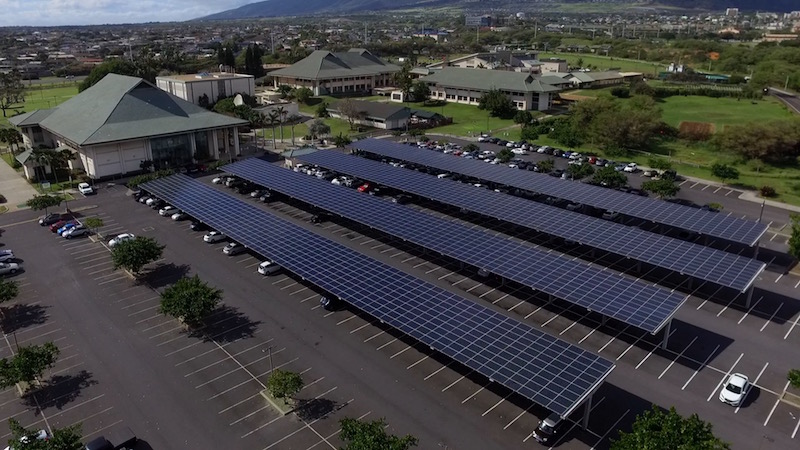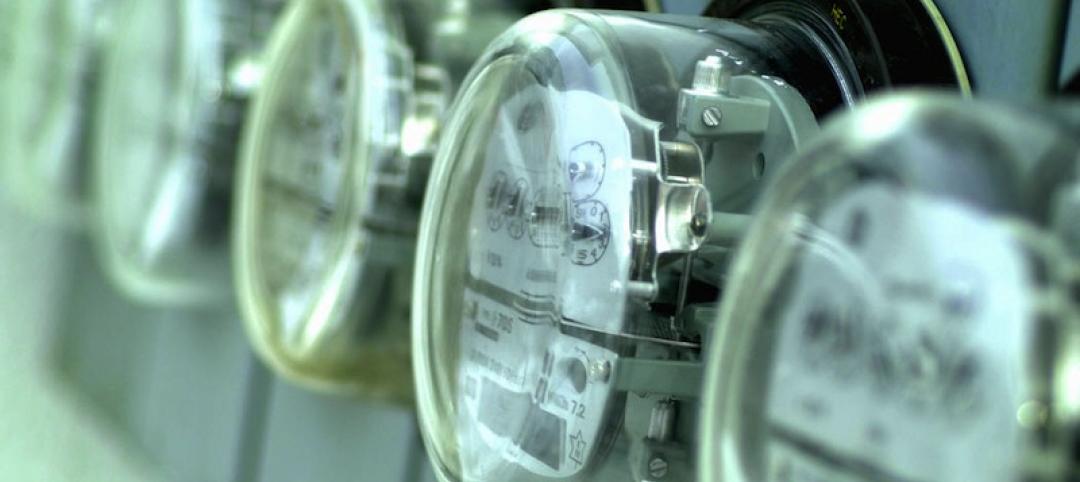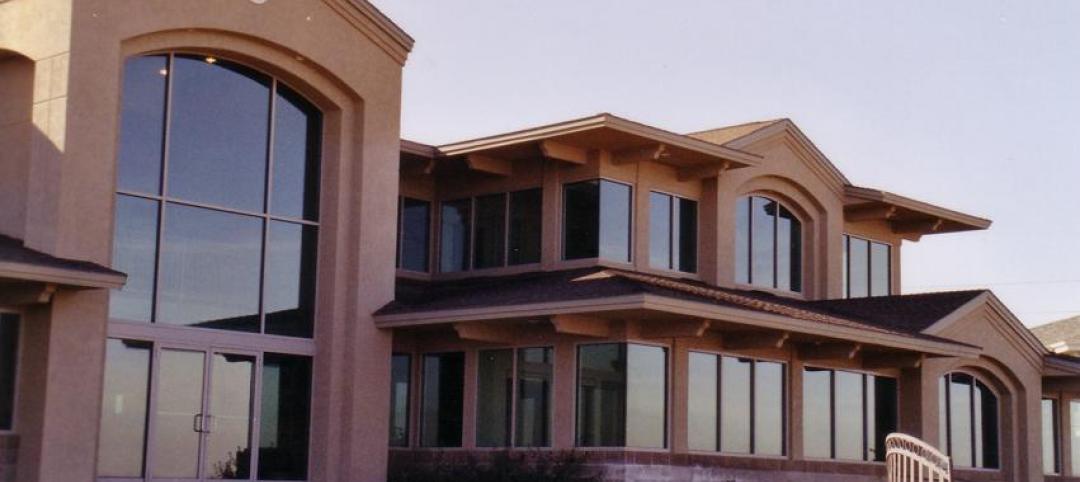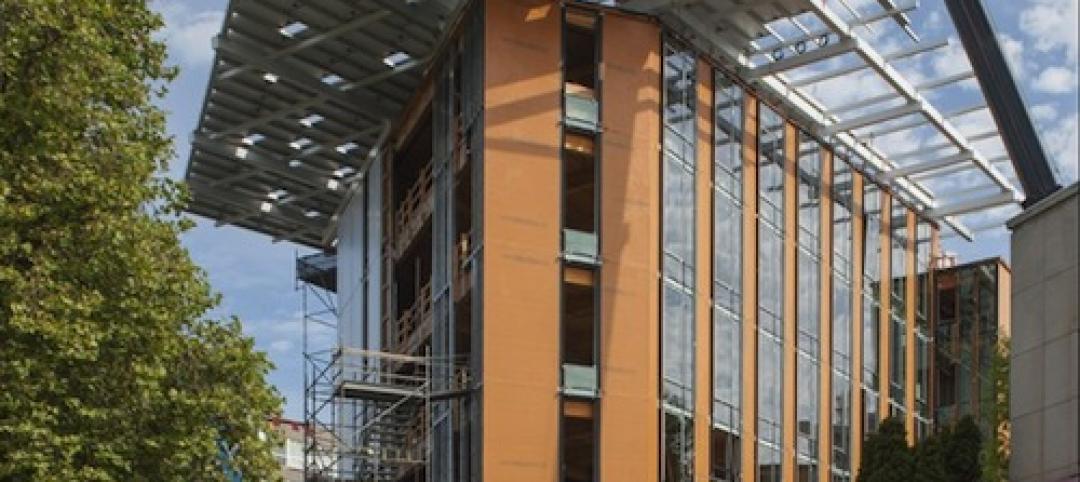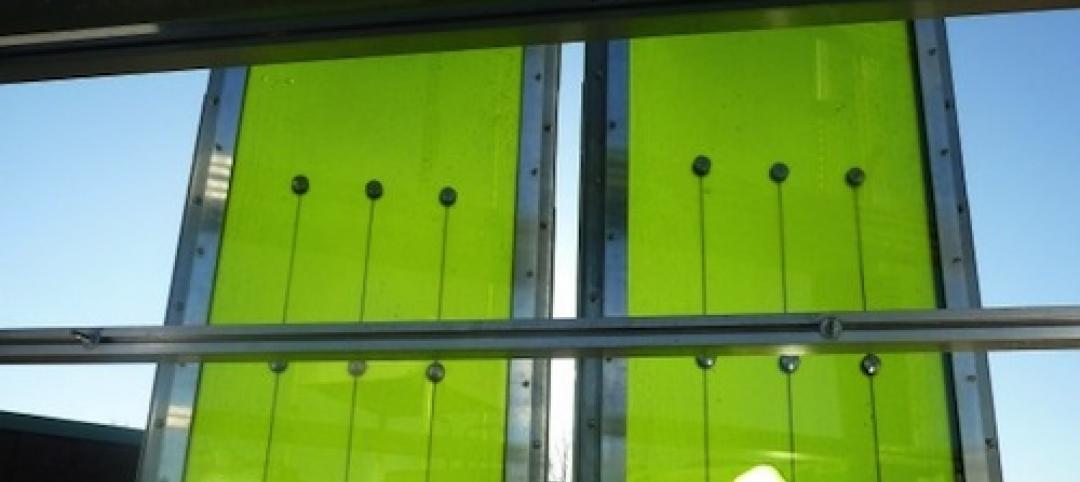In 2015, the University of Hawaii (UH) and the Hawaii Legislature established a goal for the UH university system to be net-zero by Jan. 1, 2035. Of all the campuses in the UH system, the University of Hawaii Maui College is on target to be the first to supply 100% of its energy needs through on-site photovoltaic systems coupled with battery storage, and it will do so 16 years ahead of schedule.
When it becomes operational in 2019, the UH Maui College PV plus storage system will be able to eliminate the campus’s fossil fuel-based energy use. The project is part of a partnership with Johnson Controls and Pacific Current and is currently in its second phase. Phase one saw the implementation of energy efficiency measures at UH Maui College and across all of the UH campuses. Phase two includes additional energy efficiency upgrades and the installation of the on-site solar PV coupled with battery storage.
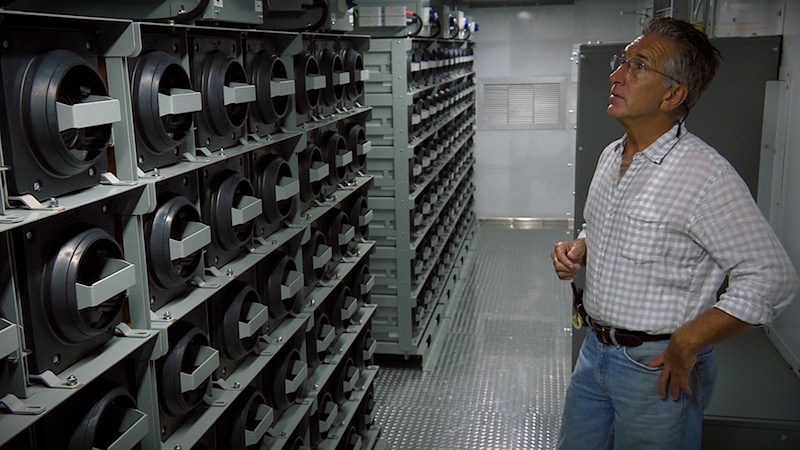 UH Maui College Physical Plant Manager Robert Burton looks at battery array. Photo courtesy University of Hawaii.
UH Maui College Physical Plant Manager Robert Burton looks at battery array. Photo courtesy University of Hawaii.
Phase two will bring the total on-site capacity to 2.8 MW of solar PV and 13.2 MWh of battery distributed energy storage at UH Maui College. Phase two will reduce the fossil fuel energy consumption across all of the five UH campuses by ~14 GWh annually (45%) and add ~13 GWh renewable energy generation.
By the end of phase two, the UH Oahu campuses will reduce their use of fossil fuel for energy by 98% (Leeward Community College), 97% (Honolulu Community College), 74% (Kapi’olani Community College), and 70% (Windward Community College).
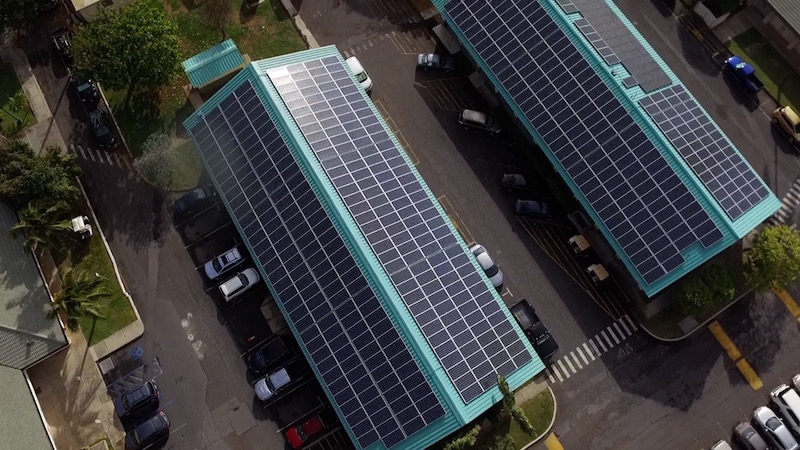 Photo courtesy University of Hawaii.
Photo courtesy University of Hawaii.
Related Stories
| Apr 10, 2013
23 things you need to know about charter schools
Charter schools are growing like Topsy. But don’t jump on board unless you know what you’re getting into.
| Apr 1, 2013
Half of building owners use 'smart' technologies, says survey
A survey of 291 building owners by IDC Energy Insights shows that 50% of owners use smart building technologies, such as HVAC controls, lighting controls, and analytics/data management.
| Mar 27, 2013
Small but mighty: Berkeley public library’s net-zero gem
The Building Team for Berkeley, Calif.’s new 9,500-sf West Branch library aims to achieve net-zero—and possibly net-positive—energy performance with the help of clever passive design techniques.
| Mar 22, 2013
Earn $500 as a DOE proposal reviewer
The DOE'S Building Technologies Office this morning put out a call to the AEC industry for expert reviewers for its new energy-efficiency initiative for small commercial buildings, which make up more than 90% of the commercial building stock.
| Mar 21, 2013
Best Firms to Work For: Enermodal Engineering is green to the core
At Enermodal Engineering, there’s only one kind of building—a sustainable one.
| Mar 12, 2013
'World's greenest' office building seeks tenants in Seattle
Superefficient Seattle office building is designed to meet the ambitious goals of the Living Building Challenge.
| Mar 6, 2013
German demonstration building features algae-powered façade
Exterior of carbon-neutral demonstration building consists of hollow glass panels containing micro-algae "farms."
| Feb 27, 2013
Bronx residents get LEED Platinum public housing complex, rooftop farm
The New York City Housing Authority has opened Arbor House, a 124-unit LEED Platinum complex in the Morrisania neighborhood of the Bronx.
| Feb 26, 2013
Tax incentive database for reflective roofs available
The Roof Coatings Manufacturers Association (RCMA) and the Database of State Incentives for Renewables & Efficiency (DSIRE) created a database of current information on rebates and tax credits for installing reflective roofs.


